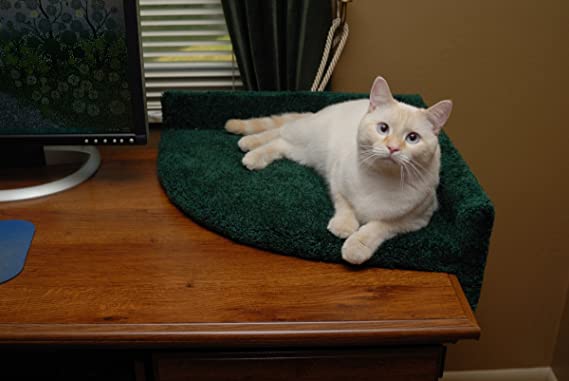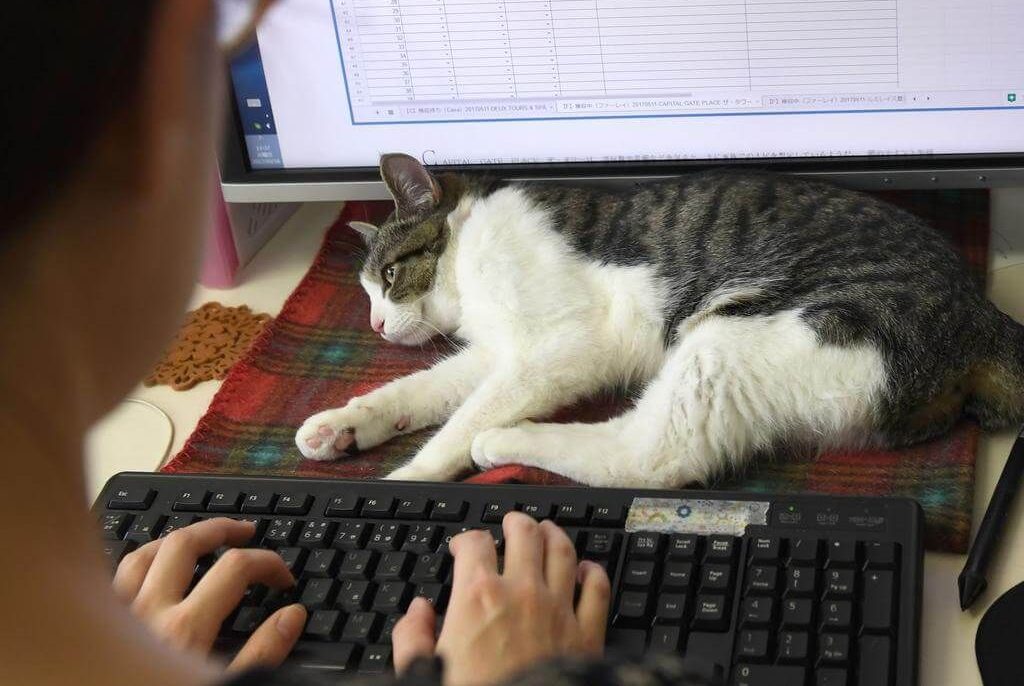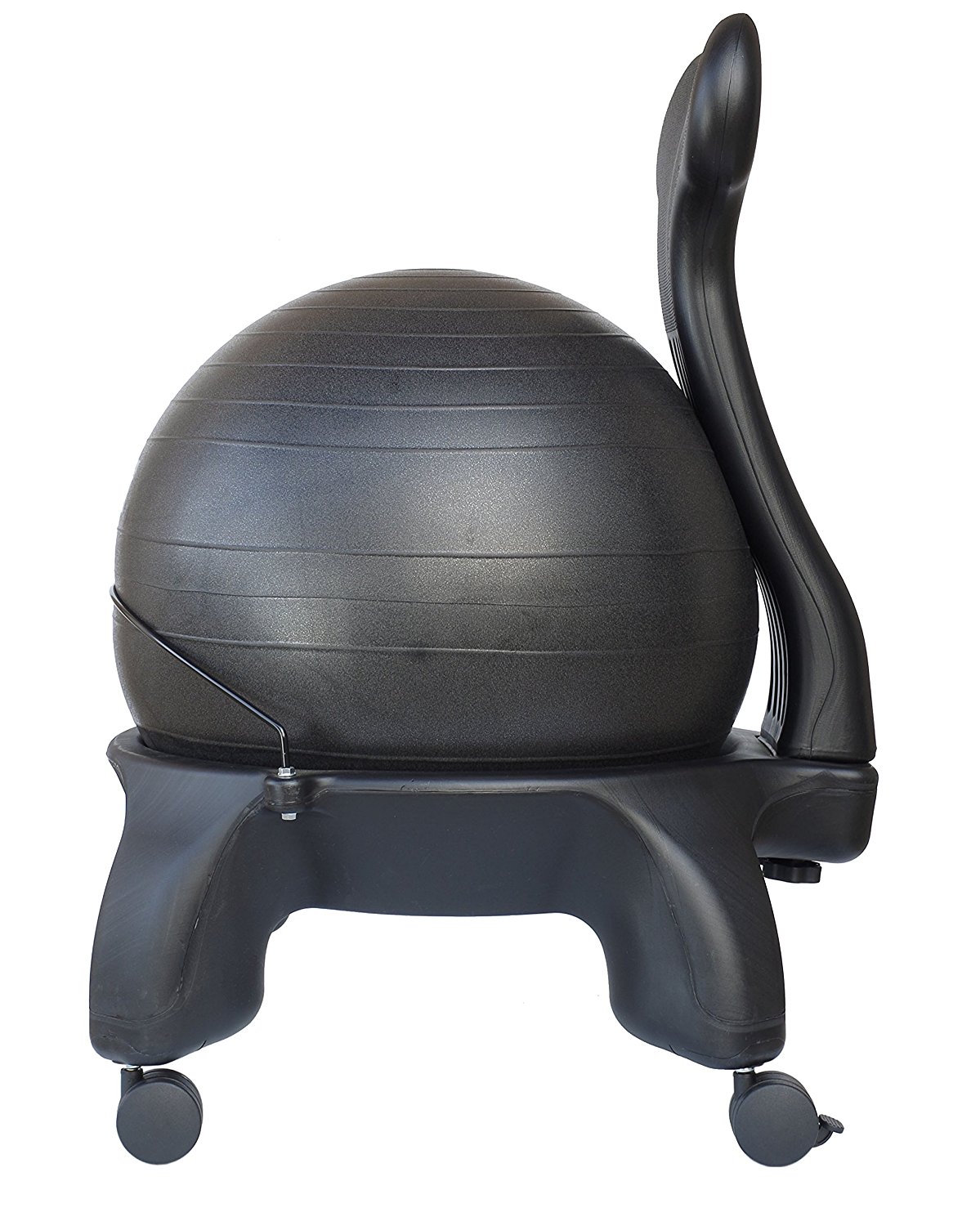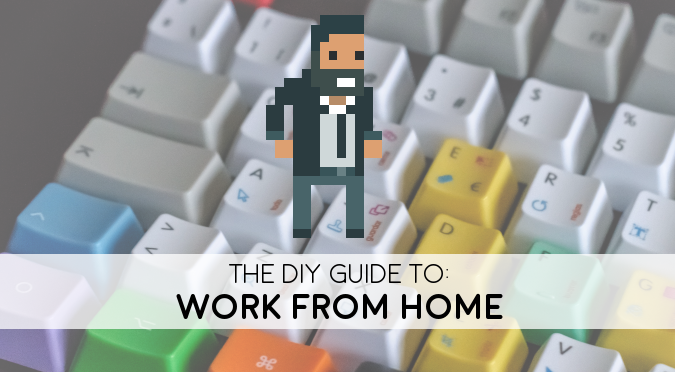A significant portion of the working force population in the Western world is employed in an office job. For many of those people, the constraint of working 9-to-5 feels like an act of unnecessary cruelty, especially in spite of the fact that most office jobs could easily go fully remote.
It is not uncommon to see working from home as an escape from the slavery of being stuck in an office job. The reality, unfortunately, is a bit different.
Working from home, either for a company or as a self-employed person, requires a level of self-control that many people are simply not used to. And, if carried out long term, it can have a negative impact on one’s psychological and physical well being.
Working from home is not easier: is actually harder.
A significant percentage of Independent developers have historically worked from home for years. So what can the indie community teach to people who want to embark on the dangerous quest of working from home? Whether you are an employee who intends to work from home, or someone who want to go fully indie to save on office space, This article will hopefully answer that question.
This is getting particularly relevant for the many people who are currently forced in self-isolation or, worst, quarantined due to the recent outbreak of COVID-19. Recent news, in fact, shows that hundreds of millions of people are currently living in parts of the world that are under lockdown, such as China and Italy. Being suddenly forced into a different work regime can leave a lot of people disoriented and unprepared to make such a change.
It is not uncommon to see working from home as an escape from the slavery of being stuck in an office job. The reality, unfortunately, is a bit different.
Working from home is not easier: is actually harder.
Understanding why you want to work from home
As simple as it sounds, the first question one has to answer before working from home is: why. Working from home is rarely a final objective, but rather a mean to something else. Many people with traditional office jobs simply prefer more flexible working hours, or perhaps they want to avoid the burden on commuting on a daily basis. Those are all very legit reasons, although they are more about not working from the office, rather than working from home. Which means that you may end up in an equally unpleasant situation. In this case, it is best to request one or two days a week from home, to see how things go.
Another big reason to work from home is if you are self-employed. Many independent developers cannot afford, or prefer not to spend money on an office space. Working from home has the purpose of saving money, which can allow people to work less. At the same time, it is important to remember that if you have collaborators, working from home for you becomes remote working for all of them. The lack of a proper office space can add an extra challenge to the coordination and supervision of a team, so is something to be cautious about when it affects other people.
For a minority of people, working from home is a choice because that is where they work best. This is often by choice; for instance, if you have created a creative and productive office space in your own home. However, it can also be somewhat of a necessity: in this category includes many people who are living with a disability.
Lastly, some people would prefer not to work from home, but find themselves forced in that situation. Parents with children, full-time carers, people quarantined or under house arrest, all fit into this last category. If you are one of them, it is important that you learn what to avoid to make sure that you are not making your situation worse.
How long are you going to work from home for?
Another important factor is understanding how long you are going to work from home. In the case of COVID-19, this is only going to be a short-term solution. A few weeks will pass by rather quickly, and you might not need to do any significant change to your lifestyle.
If you are planning on making this into a stable, long-term arrangement, then you should start planning accordingly. Your home might not have a suitable office space, and that is going to be a problem.
Tips
1) Establish consistent working hours
The first, most obvious benefit of working from home is the flexibility. But that is, paradoxically, also its biggest drawback. Without any external input, you are probably not going to wake up at 7am. Which means that you are also probably going to bed later than you usually would. Over time, your entire daily schedule could drift away. It is important to fight that establishing consistent working hours. Perhaps you do not need to wake up at 7am, but starting later than 10am might be dangerous.
Having a somewhat defined work schedule will also avoid overworking; something that many indie developers are familiar with. Without the external pressure to leave the office, you are likely to overwork on the projects you are passionate about. That is good, but only if it happens occasionally.
Being aligned with “traditional” office hours is also important to maintain social interactions. Even if you work remotely for an oversea company, you should try to stay aligned as much as you can to your timezone. That is especially important to make sure that you are exposed to the right amount of light during the day.
2) Plan for breaks
This advice is, in part, a consequence of the first one. Make sure to plan for a lunch break in your schedule. Working from home gives you the flexibility to decide when to have lunch, without worrying about having to interrupt meetings or projects. But your body needs a consistent routine.
Preparing lunch is a chore that many people do not find very appealing. Without access to a proper canteen, it is not uncommon for people working from home to binge on snacks instead. This is going to be a problem, if you keep doing it for too long. One trick is to cook something in large quantities in the evening, so that you can have a quick break while working.
Another aspect that is very important is to plan for smaller breaks. Stretch yourself, have a walk, look away from the monitor.
3) Keep the work/play areas separate
Many people who are working from home are actually working form their bedrooms. That is especially true for the ones who are living in rented or shared accommodations, where space is an expensive commodity.
The main problem with working where you sleep is that, over time, it will be harder to relax. Your own bedroom is now the place where you work, so your brain might take longer to switch off after your shift is over.
It is almost impossible to keep a perfect separation between work and non-work areas in your home. But the more coupled they are, the harder it will be to know where the boundaries are. This is likely to make you less productive, as it “dilutes” the working hours over a longer period. You might end up working a lot, but achieving very little. If you realise that is the case, it is probably time to make some significant changes to your office space.
You do not need to have a physical separation (i.e.: using different spaces in your home), as it can also be a “mental” separation. When in “working mode”, you will behave differently. Physically, you are at home; but mentally, you are in an office space. One easy technique is to start working first thing in the morning, before opening your personal email.
Try switching between different desktops, if that is an option for your OS. This way you can have a “work desktop” and a “home desktop”. This is an option well supported by Windows 10 (“Multiple desktops in Windows 10“), MacOS (“Work in multiple spaces in Mac“) and most Linux distributions (“Switch between workspaces“).
If you are planning on working from home only for a short amount of time, you can probably work from your sofa or kitchen table. This is obviously not something you should do long term, as it might not be ideal for your back.
It might also be helpful to create the illusion of being in an office, by playing a relaxing ambient noise recorded in an actual office.
Working from cafes is a very popular option as well. However, that is likely to be very expensive. Use it if you need some inspiration for the day, but not as your actual office space.
4) Avoid Distractions
When at home, you are likely surrounded by distractions. This is because the place where you live was naturally designed to be comfortable and entertaining, not productive.
Put your phone in aeroplane mode to make sure that you are not receiving any notification or distraction. Clear your desk so it has no distractions, or things you can play with. If you browse the internet, you may find a lot of apps that are supposed to increase your productivity. While some of them can definitely help, being productive is ultimately a state of mind, not an extra app installed on your computer.
If you are working remotely and have a computer at work, you can use Chrome Remote Desktop to log in into it. More advanced alternatives, such as Team Viewer, will probably require admin rights which you are unlikely to have on a work computer.
Another important aspect, that is often overlooked, is the fact that many people working from home will have to share their newly created office space with partners, flatmates and (in the worst-case scenario!) children. Partners can struggle to understand that, even though you are home, you are technically working. It is important to understand that this is as much of a transition for you, as it is for them. It is unlikely their behaviour will change immediately, and some serious talk is probably required. It is also true that they might not know when they can interrupt you. A common solution is to find something that can telegraph to them the fact that you are not available. This could either be a closed door, or a status on Skype or Facebook. If they need something urgent from you, agree on a way to reach you; such as sending a message instead. This way, you can respond at your earliest convenience.
While some app can definitely help, being productive is ultimately a state of mind, not an extra app installed on your computer.
Depending on what you are doing, avoiding distractions can be very challenging. The most common advice of “do not use social media”, for instance, does not apply to all of those people who are working with social media. Likewise, most programmers know that a significant portion of their time will be spent on Google and StackOverflow. Distractions will hit at you like bullets. Installing an ad-blocked might help you slightly, but ultimately this is something that requires a lot of self-control.
Pets are also another big distractions you might have to deal with. If you have a dog, walking them in the morning might give you a bit of freedom for a few hours. And could become a nice routine that helps you to become more productive.
Cats are trickier. They are likely to jump on your desk, begging for your company. Over the colder months, they might also find your warm laptop an irresistible sleeping spot. The best way to move forward could be to encourage a peaceful co-existence, rather than getting stuck in an endless fight. Create a more appealing space for your cat, where they can enjoy your company and you can enjoy theirs.
 |
 |
5) Invest in an ergonomic desk and chair
Working from home might be a temporary solution. This is the case of the COVID-19 outbreak, and if you are currently forced to stay at home you may not need to make any significant change to your workspace. If you are planning on doing this for a few months, something needs to change.
This is when you should invest in an ergonomic desk and chair. You cannot expect to spend eight hours sitting on a kitchen chair without totally destroying your back. Some chairs are designed to be comfortable, not to be practical. And if you are going to use a computer, then your posture needs to be right.
Ergonomics chairs and desks are unfortunately very expensive. But useful changes can be made to most existing desks at no cost. For instance, you can raise your monitor by using a few books.
Creating the right space for you is, unfortunately, very hard. Most chairs feel comfortable at first, but you will not know if they are right for you until you have spent a week sitting on them.
Many people prefer to work from home because it gives them the flexibility of exploring alternative desk arrangements, such as kneeling chairs, yoga balls and standing desks. They can be an interesting investment, but unless if you had a chance to try them beforehand, it is better to stick with something more traditional.
 |
 |
6) Plan ahead
Working from home requires a significant investment, especially in the way you work. If you do not have any external pressure, you will need to be your own boss. This means finding a good balance between being too flexible and being too harsh on yourself.
Have realistic expectations on what you can achieve, and do not punish yourself if you cannot meet your goals. Instead, focus on what stopped you in the first place. Perhaps your original plan was too ambitious, or your current setup is not productive enough. Sometimes, when work is not working, you do not need to work more: you need to work less. I have talked about this, among a few other tricks to be more productive, in one of the opening talks of the Global Game Jam 2020 at Goldsmiths, University of London.
It is worth to start the day with a good plan for what you want to do. If you tend to go to bed with a lot of anxiety about the next day, you can do this plan the night before. One technique that is becoming increasingly popular is eating the frog. Do the things you hate the most first. This way, you can be much more relaxed for the rest of your day and you will avoid having a pile of really nasty tasks to complete at once.

Sometimes, when work is not working, you do not need to work more: you need to work less.
Ultimately, working from home is more of a dark art than an exact science. You need to find what works for you, and that is going to require some experimentation. Do not get discouraged if it does not work at first. Like all things, practice makes perfect. Even when it is all about working from home.
💖 Support this blog
This website exists thanks to the contribution of patrons on Patreon. If you think these posts have either helped or inspired you, please consider supporting this blog.
📧 Stay updated
You will be notified when a new tutorial is released!
📝 Licensing
You are free to use, adapt and build upon this tutorial for your own projects (even commercially) as long as you credit me.
You are not allowed to redistribute the content of this tutorial on other platforms, especially the parts that are only available on Patreon.
If the knowledge you have gained had a significant impact on your project, a mention in the credit would be very appreciated. ❤️🧔🏻





Nice article. Been working from home for a long time, but found some useful tips. I particularly like the separate desktop idea.